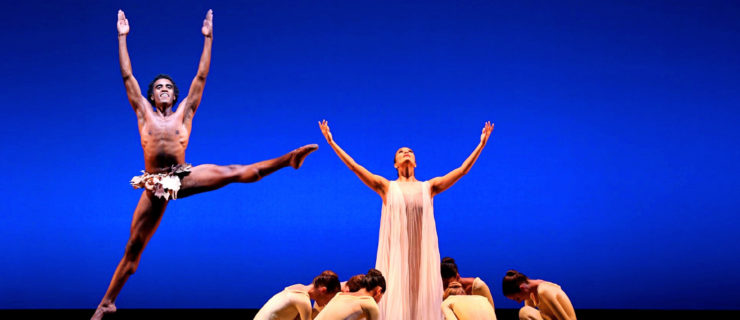Where's the Line Between Cross-Training and Exercise Addiction?
Tackling an exercise regimen with focus and dedication can really pay off in your dance career, and there’s a definite thrill associated with seeing your technique, strength, and stamina improve. But what happens when your drive morphs into something that’s driving you? That’s what exercise addiction feels like: a sense that you have to do more. “Exercise addiction controls you,” says Diane Israel, a psychotherapist who specializes in body image and is an adjunct professor at Naropa University. Israel is also an exercise addiction survivor and a former world-class runner and triathlete. “It has a different quality than exercise that’s joyful, and that you know is good for you,” she says.
What Is Exercise Addiction?
Exercise addiction is defined by obligation. “You might feel really guilty about not exercising, even if you’re tired, sick, or injured,” says Philippa Ziegenhardt, counselor at the Australian Ballet School. Exercising takes priority over your normal activities, including rest and recovery. “Exercise addiction has a harsh, punishing, and critical energy,” Israel says. “It tells you ‘Get going’ and ‘You’re not OK unless you do A, B, and C.’ ”
This might sound alarming to dancers who are used to self-motivating through tough rehearsals, training sessions, and performance seasons. But Dr. Andrew Garnham, sports physician at the Australian Ballet School, says that it’s important to look out for that feeling of preoccupation. “Exercise addiction leads to the exclusion of, and reduced performance in, your other usual activities,” he says. “It may also become apparent that performance in the chosen activity is diminishing rather than improving, despite devoting more time and effort to it.”
Health Impacts
With both physical and mental health impacts, exercise addiction can really take a toll on a dancer’s career. “It affects normal growth and development,” Garnham says. “There may be delayed puberty, failure to grow, reduced muscle and bone strength, and frequent or recurrent injury.” Disordered sleep and disordered eating are also associated with exercise addiction.
Israel adds that your sense of self-worth is likely to suffer, too. You might feel ashamed of or angry at yourself for doing something that you know is harmful, but which you can’t stop. “At a certain point, you might feel more addicted to the training than the performance or event,” she says. “And when you overtrain, you can’t perform at your best.”
Road to Recovery
The bottom line is: If you don’t get support, you’ll lose what you love. That support should be both physical and mental. It will take time, and require a team of care providers, to recover from exercise addiction. Use your regular doctor as a point of continuing contact during your recovery. “Your doctor will monitor your progress,” Garnham says. Ziegenhardt suggests eventually working with an exercise physiologist, who studies the effects of exercise on the body. “This could help you reintegrate exercise into your life in a balanced way.”
Israel stresses the importance of finding practitioners experienced in treating exercise addiction, who don’t simply tell you to cut back. You might know that’s what you need, but not how to do it. It’s OK to take time finding the right medical and mental-health care providers. “It’s a journey toward healing,” Israel says. “You can’t bargain with exercise addiction. You have to face it and name it.”
A version of this story appeared in the May/June 2019 issue of
Dance Spirit with the title “Exercise Addiction 101.”




